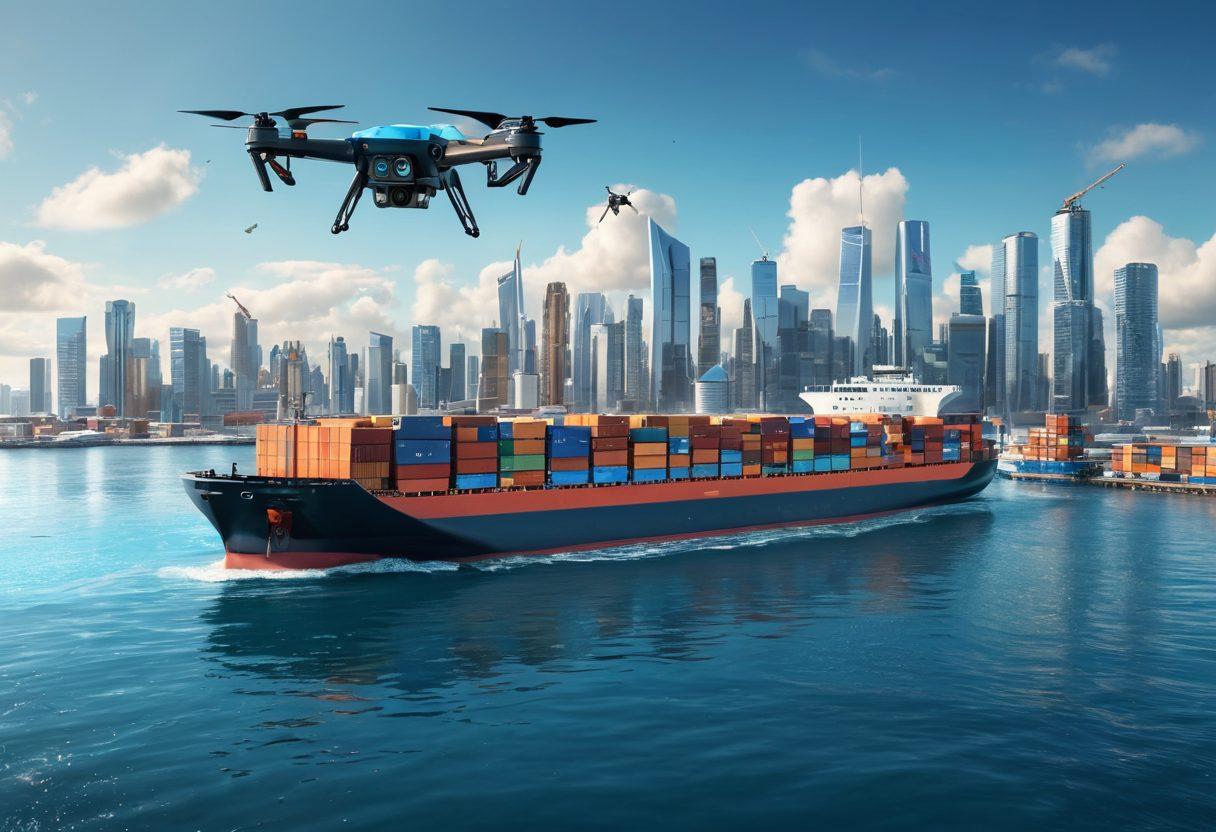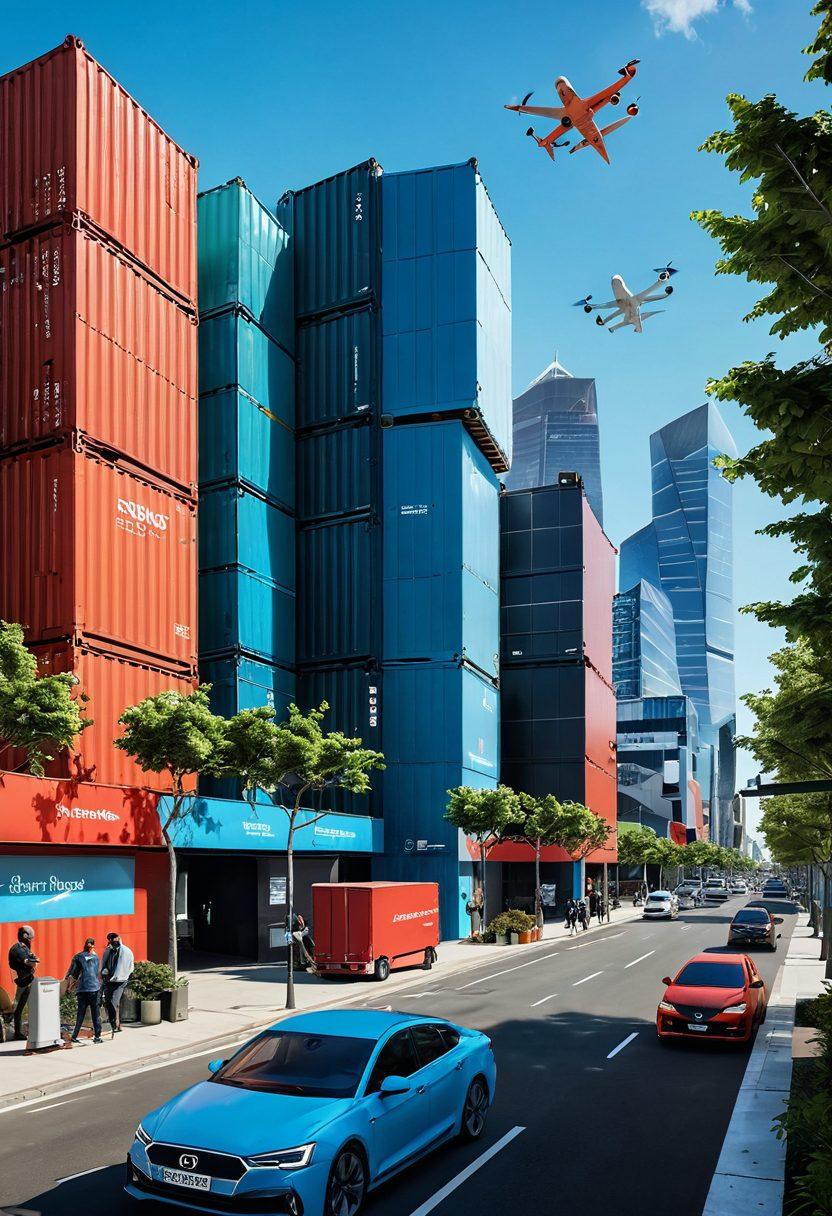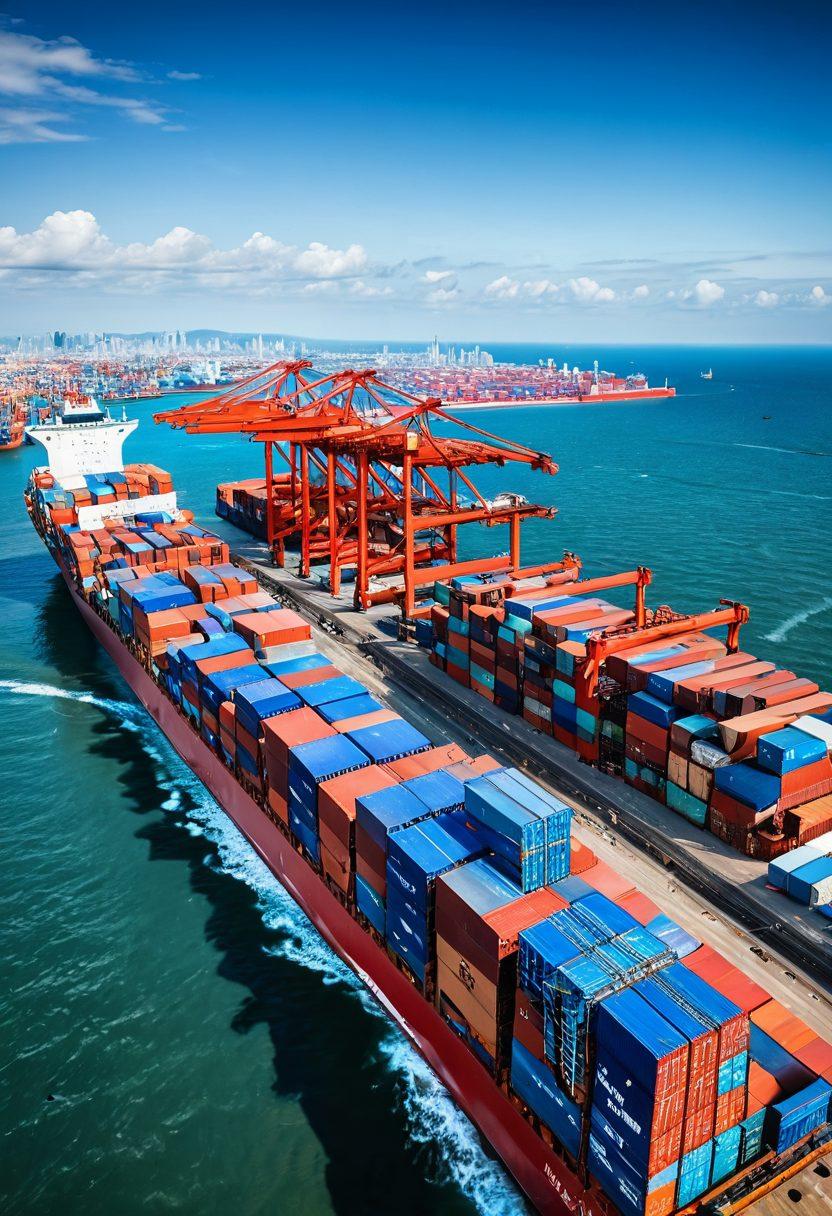Soaring High: Navigating the Future of Global Shipping and Logistics
In the ever-evolving realm of global shipping and logistics, the need for strategic foresight has never been more critical. Picture this: a bustling international port where thousands of containers are loaded and unloaded seamlessly, embodying the essence of efficiency and innovation. This vivid imagery captures just a fraction of what's at stake in the industry today. The future of shipping is much like an eagle soaring high above its terrain, possessing an eagle-eye view of the trends and technologies that will shape the logistics landscape. Let’s delve into these shipping insights that are poised to redefine maritime shipping as we know it.
As we move towards a more interconnected world, the trends in logistics solutions are rapidly transforming the way we perceive and manage shipping operations. From the rise of automated freight logistics to big data analytics, each innovation presents new opportunities and challenges. Did you know that 80% of global trade is conducted via maritime shipping? With ever-increasing demands, it is vital for industry players to keep their operations streamlined and efficient. As we explore the nuances of freight transportation, consider how these changes may impact your own business or plans for shipping services.
One of the most significant trends affecting the logistics industry today is sustainability. Companies are no longer just focusing on profits but also on their environmental footprints. For instance, the rise of eco-friendly container ships and green cargo services is making waves in the sector. Imagine a world where shipping not only fuels global trade but also safeguards our planet. As the dialogue around climate change intensifies, stakeholders in the shipping management sector are keenly aware that their decisions today will dictate the maritime logistics of tomorrow. So, how can businesses align their operations with this global imperative without compromising efficiency or cost?
Technology is another dominant force shaping the future of global shipping. The integration of artificial intelligence and blockchain technologies is providing unprecedented transparency in the supply chain. Armed with such shipping insights, businesses can predict demand fluctuations and effectively manage inventory. For instance, eagle transport companies are increasingly adopting AI-driven solutions that enhance cargo tracking and optimize shipment schedules. These advancements not only save time but also minimize the risk of delays in international freight deliveries. Are you leveraging technology effectively in your shipping operations? Is your strategy in step with the shifting tides of innovation?
Finally, let's spark a conversation about adaptability in shipping trends. As the logistics landscape constantly evolves, agility is paramount. Businesses must remain vigilant, ready to pivot and adapt to new market realities. Staying informed through credible transportation blogs and shipping news will empower you to seize opportunities as they arise. So, as we wrap up our exploration of eagle-eye insights in global shipping, ask yourself: are you prepared to soar alongside your competitors and navigate the complexities of maritime logistics? The future is ripe with potential for those willing to embrace change.
Navigating Challenges: Innovative Logistics Solutions for a Changing World
In a world where change is the only constant, the realm of global shipping and logistics is no exception. With the rapid evolution of technology and international trade dynamics, navigating challenges has become more important than ever. The shipping services we once knew have transformed, allowing us to unearth innovative logistics solutions tailored for a new age. Imagine a time when freight logistics involved long wait times and unpredictable delivery schedules. Now, as we soar above these outdated practices, it’s time to explore how organizations adapt and succeed amidst the whirlwind of change.
Every day, new challenges emerge in the logistics industry. International freight operations face hurdles such as unforeseen bottlenecks, stricter regulations, and shifting consumer demands. This ever-changing landscape invites questions: How can maritime shipping adapt to volatile markets? What innovative strategies are transforming shipping operations? When we look to the eagle transport, known for its keen vision and swift maneuvers, we can draw parallels to how businesses must approach these challenges with sharp focus and agility.
Take, for example, the role of technology in enhancing shipping management. Cutting-edge tools like AI, IoT, and blockchain have become game-changers in our quest for efficiency. A thriving transportation blog might ask its readers: Are you utilizing the latest logistics solutions to optimize your supply chain? Insights from experts reveal that leveraging these technologies can streamline processes, manage ocean freight more effectively, and cut costs while maintaining quality cargo services. Indeed, the future of freight transportation rests on embracing innovation.
As maritime logistics continue to evolve, companies are busy rethinking their strategies. They recognize that success lies not just in traditional shipping trends but in fostering collaboration within the industry. Forging partnerships with key players in the ecosystem can provide access to critical shipping news and operational insights. Just like an eagle gliding effortlessly through changing winds, those who stay attuned to global shipping narratives can adapt more effectively. Are we prepared to embrace this interconnectedness and collective strength in our logistics approach?
Ultimately, the future of global shipping hinges on our willingness to embrace change. By staying informed and adaptable, we position ourselves to conquer the challenges that lie ahead. Whether you are involved in maritime shipping, freight logistics, or any segment of the logistics industry, remembering the lessons of the eagle and harnessing innovative logistics solutions can lead us toward success. Let’s navigate these waters together, share our experiences, and ensure that our ventures in logistics soar to great heights.
From Ocean Freight to Supply Chain Mastery: Elevating Cargo Services in 2023
As the sun rises over the expansive waters of the ocean, ships begin to traverse its vast blue canvas, each carrying precious cargo from one shore to another. This mighty dance of maritime shipping is more than just a movement of goods; it’s a lifeline for global trade, particularly as we step into 2023, a year ripe with transformation in the logistics industry. With innovations emerging as quickly as waves crash against the ship's hull, it's crucial for professionals to stay updated on shipping services and logistical solutions that can elevate their cargo services. So, how do we navigate this dynamic landscape effectively?
Imagine being the captain of a ship, steering through unpredictable weather while ensuring that every container reaches its destination. That’s the reality of freight logistics—a blend of strategy, precision, and adaptability. As we learn from expert insights, shipping trends in 2023 will lean heavily into enhanced freight transportation management, making it vital for companies to employ robust logistics solutions. Are you wondering how to keep your freight logistics flow steady amidst these changes? Engage with shipping operations like never before, using data analytics and digital platforms to optimize your routes and reduce costs.
In a world that seemingly shrinks with each technological advancement, the concept of international freight has taken on new meaning. With eagle transport services leading the charge, companies can take advantage of smarter ways to track their shipments, ensuring greater efficiency in their supply chain. Not only does this ensure timely deliveries, but it also reduces the potential for loss and even theft of valuable cargo. Through a compelling blend of traditional maritime logistics and modern ingenuity, can your business keep pace with the rapid evolution of global shipping?
But the question that often looms large is: how does one become a master of supply chain management in such a complex web of operations? The answer may lie in building relationships across the shipping spectrum. Collaboration with reputable shipping companies, capitalizing on shipping news for strategic decisions, and engaging with other stakeholders can provide a significant advantage. According to industry experts, sharing insights not only enhances your operational framework but also cultivates a win-win environment that could redefine the very nature of cargo services.
As we delve deeper into 2023, it's apparent that those who invest in understanding the nuances of ocean freight and international logistics stand to benefit immensely. Whether you're reading this as a professional within a logistics company or as someone passionate about shipping technology, the call to action is clear: embrace change, stay informed, and constantly adapt. In the ever-evolving world of maritime shipping, only those prepared to evolve will truly soar. So, let’s embark on this journey toward supply chain mastery together—what steps will you take today to elevate your shipping operations?


